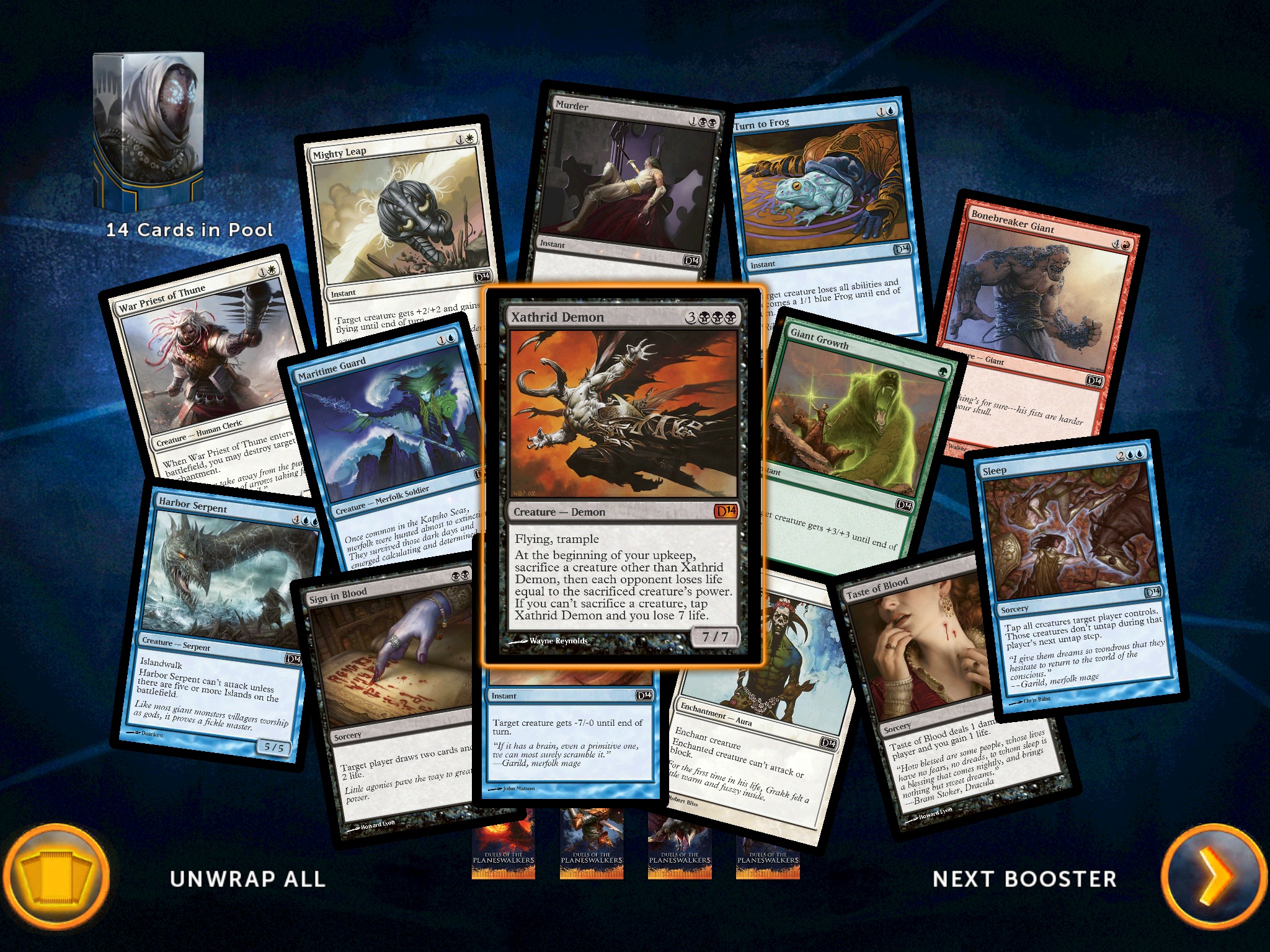
Magic players, for example, can participate in local, regional, national, and worldwide competitions with prizes and monetary rewards. Funko Pop! also sells Magic toys and action figures. In the Magic universe, Wizards of the Coast produces print and online books, comics, and other literature.

Magic, moreover, is played all over the world, with cards produced in English, Japanese, Chinese, Russian, Korean, Portuguese, Italian, and Spanish. Cosplayers assume the role of their favourite Magic planeswalkers at conventions around the globe, while Wizards of the Coast produces limited-edition cards in the form of Secret Lair drops.
#MAGIC CARD GAME SIMULATOR ANDROID#
As of September 2018, Magic Arena launched on PC and expanded to both Android and iOS devices to a large and thriving player base.
#MAGIC CARD GAME SIMULATOR PS4#
Magic Online (MTGO) offers PC players a nearly 1:1 replica of the paper collectable card game (CCG or trading card game, TCG), while Magic: Duels of the Planeswalkers and Duels games are playable on Kindle, iPad, Android smartphones, Xbox360, Xbox One, PS3, and PS4 (Crutcher, 2017). Accordingly, Magic is widely accepted in popular culture and other media. Magic’s influence extends beyond its present popularity and stature in the cultural zeitgeist. In planning the design for this new game, it was important to consult inspirational games like MTG to see if some or all of the elements we would like to adapt would be suitable for our context. Stakeholders in this realm devise experiences which intend to do more than merely entertain (Laamarti et al., 2014) often with small budgets and smaller human capital (Sawyer & Smith, 2008). Ominously, the variability of a single game (namely, MTG) mirrors the work of serious game designers (Braad et al., 2016). The ways to play MTG thus echo the vast assortment of cards (20,000+) in existence. Furthermore, these formats are characterised by a range of play variants (i.e. The attributes and goal of the game, however, are established by one of many game formats (i.e. Players typically play with predetermined, physical decks of cards and take turns playing “spells” (cards) in a fantasy duel with other players. This system can therefore be described as axiomatic and is so essential that the TCG would not operate without it.Įach game of MTG is stochastic, in that it is difficult to predict and has a random probability distribution (Churchill et al., 2019). Each colour represents a slice of this pie and functions as the core of the game itself driving mechanics, setting boundaries, governing playstyles and defining game features in the process. Five distinct factions (White, Black, Blue, Red and Green) are playable and constitute this system. One of the most intriguing aspects of the card game is its underlying philosophical and mechanical framework: the colour pie.

From intricate rules to multifaceted turn order, the popular trading card game (TCG) has garnered attention from game players, designers and researchers since its launch in the early nineties. MTG is possibly the most complex game ever devised. The modern concept of CCG was first presented in “Magic: The Gathering”, designed by Richard Garfield and published by Wizards of the Coast in 1993 (Garfield, 2013). Collectible Card Games (CCG), also called Trading Card Games (TCG), are games played with specially designed sets of cards. Results include giving examples of Dogs of War and how itĭogs of War (DoW), the game that this article wishes to report on, is directly inspired by Magic: The Gathering (MTG). Otherwise) can be accrued by formulating and implementing such a philosophicalĭesign foundation. Research reports on the extent to which tangible results (mechanically, and Up until this point only focused on designing DoW, but once the game isĬomplete, a research project will be conducted to study its efficacy. A similar framework has been devised for a history-for-education tradingĬard game currently in development called “Dogs of War” (DoW). Merits of the game design of MTG and to adapt it for our own use in a new card The purpose of this research was to investigate the Of the Coast, Hasbro) offers remedies to this issue in the form of a central


The popular trading card game “Magic: The Gathering” (Wizards However, game designers typically struggle to imbue philosophical depth into Many hindering aspects are to blame for this, including: project scope, available resources, stakeholder makeup, Contemporary serious game development remains largely improvised and


 0 kommentar(er)
0 kommentar(er)
